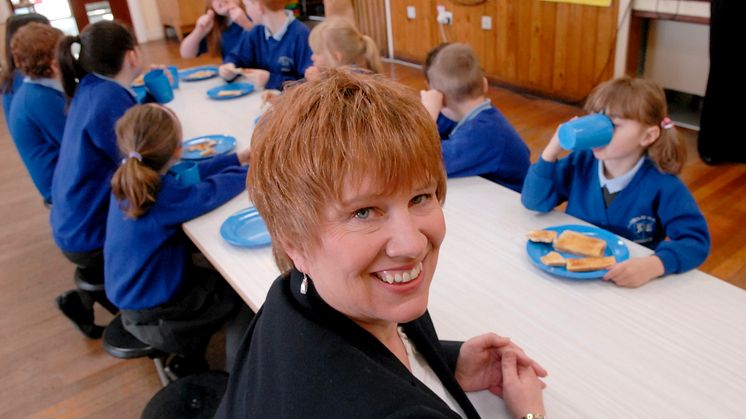
Press release -
Where’s the money gone? The mystery of the ‘missing’ £88 million allocated to provide free school meals to disadvantaged children
MILLIONS of pounds allocated by the government to feed some of the poorest children in the country is unaccounted for, according to a new report being published today (Thursday 27 June).
Hungry for Change, a working paper on free school meals being published by anti-poverty charity Feeding Britain, estimates that in one year alone £88.3 million allocated to local authorities to provide free school meals for eligible children has ‘disappeared’.
This estimate has prompted Frank Field MP to request a National Audit Office inquiry into the free school meals budget.
The Hungry for Change paper was written by Professor Greta Defeyter and Professor Paul Stretesky at Northumbria University’s Healthy Living Research Lab. Their paper and its findings are due to be discussed by MPs in the House of Commons today.
The researchers analysed data for primary and secondary pupils in England who were eligible for and claiming free school meals. All pupils in state funded schools, up to the age of seven, are entitled to universal infant free school meals. For pupils who are older than seven, their eligibility is means tested.
On the date of their census they found that almost 20% of means-tested and eligible free school meals pupils had not taken the meal available to them due to absenteeism. However, government allocated funds were used to pay for the meal.
Using official data available for all 152 local authorities in England, Hungry for Change shows that some of the most deprived areas in the country are worst affected by a situation where pupils entitled to free school meals are not able to spend the money available to them on school food.”
Estimates for local authorities in Yorkshire, the North East, North West, South West and East of England indicate that many lost more than £1 million during the 2016-2017 academic year. Collectively, the report estimates that during this period alone, total figures involved nationally top more than £88 million.
Professor Greta Defeyter said: “Free school meal funding is administered by local authorities, with many secondary schools using smart cards to manage these payments. Secondary school pupils who are in receipt of free school meals have money credited to their smart cards to pay for their daily meals.
“At the end of each day, the card is wiped of its credit. This means if a pupil is absent from school, misses lunch or does not use the full monetary entitlement, it is removed from the pupils account.
“In contrast, where parents pay for their child’s meals, any unspent credit remaining on their card at the end of the day rolls over and accumulates.”
Professor Stretesky noted the figure of £88.3 million is likely to be conservative as data used in Hungry for Change only captures information on pupils who were absent from school on the census date and does not include pupils who skipped lunch or those who did not spend their full daily entitlement. Furthermore, this analysis is based solely on pupils in receipt of means-tested free school meals and does not look at meals not taken under the universal infant free school meal programme.
Professor Defeyter asks: “What happens to this money?”
The report notes that the sources used for data capture and analysis do not provide detailed information about free school meal finances. “We were unable to calculate what proportion of the £88.3 million remains at the local authority level, with private school catering companies, with the school or is returned to the Department for Education,” Defeyter points out.
Defeyter and Stretesky say that the process of wiping cards for some pupils and not others is effectively a two-tier system of treatment. Defeyter added: “We potentially have a situation where the most disadvantaged in our society are subsidising the meals of those who are better off.”
Frank Field MP, who has secured a House of Commons debate on the Children's Future Food Inquiry, will raise with ministers the findings in Hungry for Change. He said: “Having decided that these sums should be spent on improving the nutrition and life chances of children from disadvantaged backgrounds, a fresh audit is required from the Government to ensure this decision is being honoured in full.
“Once it has found out where the money goes, we then need ministers to require all unspent money to be recycled directly towards the feeding or schooling of those children who are currently losing out.”
Topics
Categories
Northumbria is a research-rich, business-focused, professional university with a global reputation for academic excellence. To find out more about our courses go to www.northumbria.ac.uk
If you have a media enquiry please contact our Media and Communications team at media.communications@northumbria.ac.uk or call 0191 227 4604.










